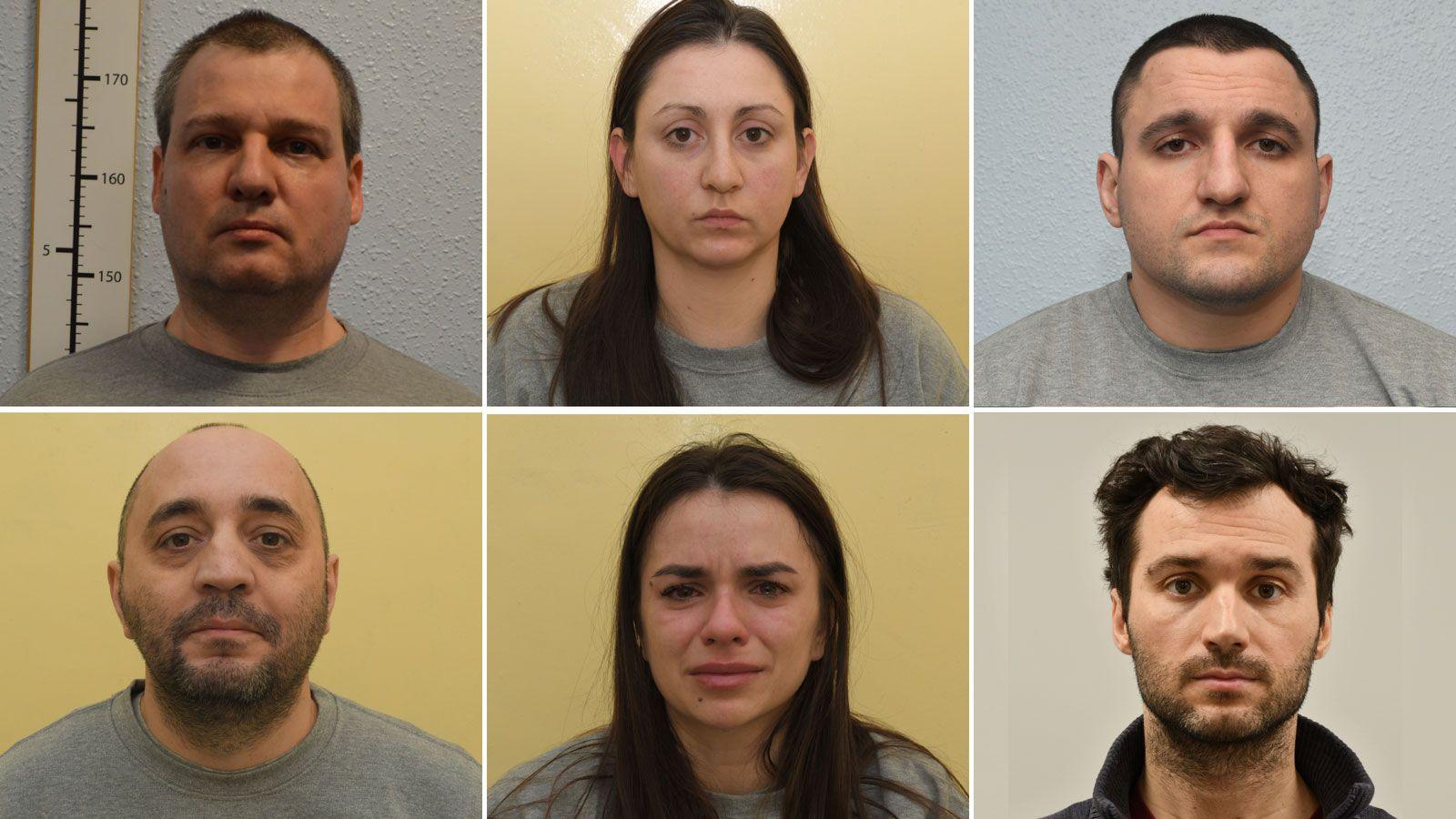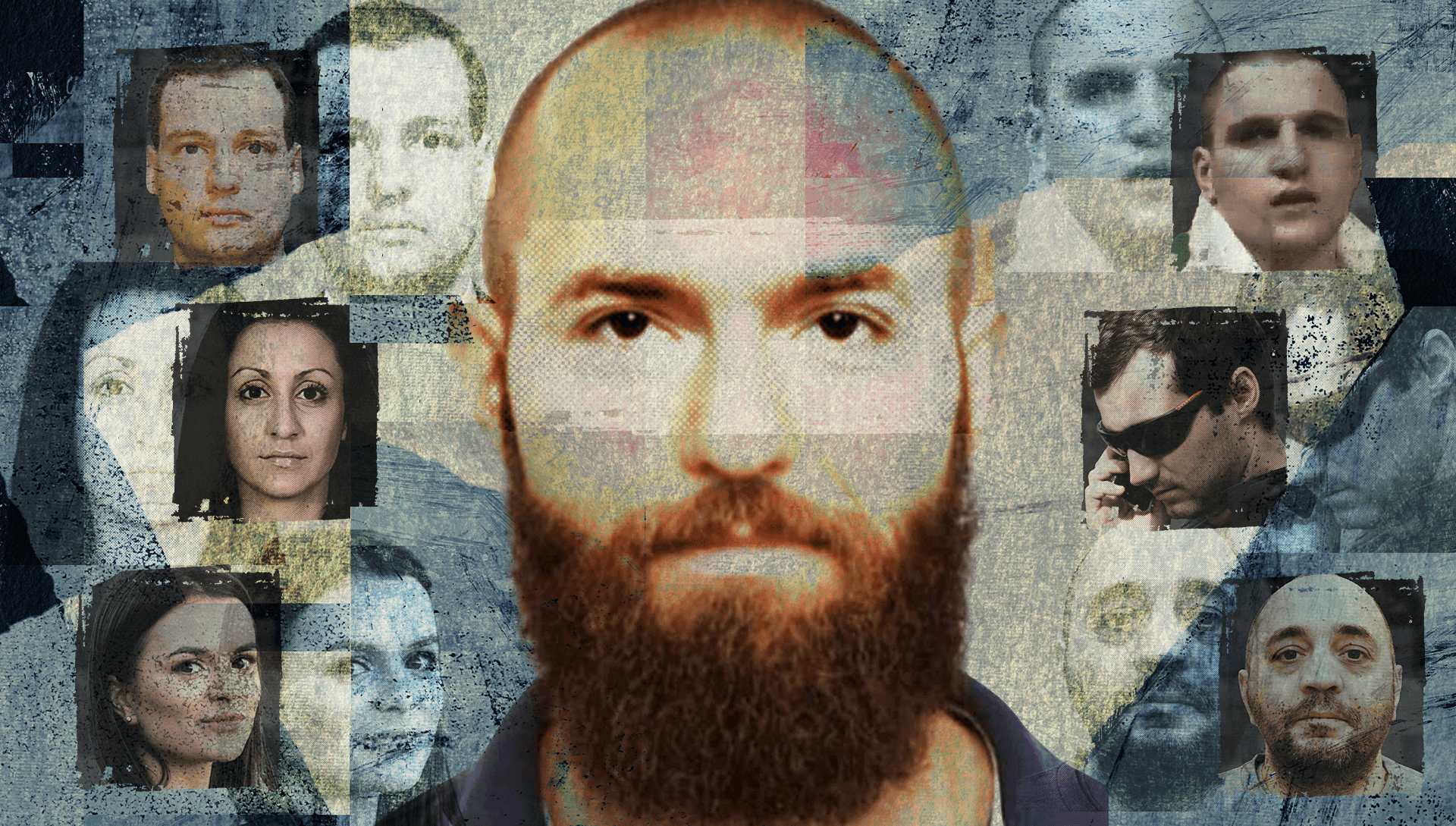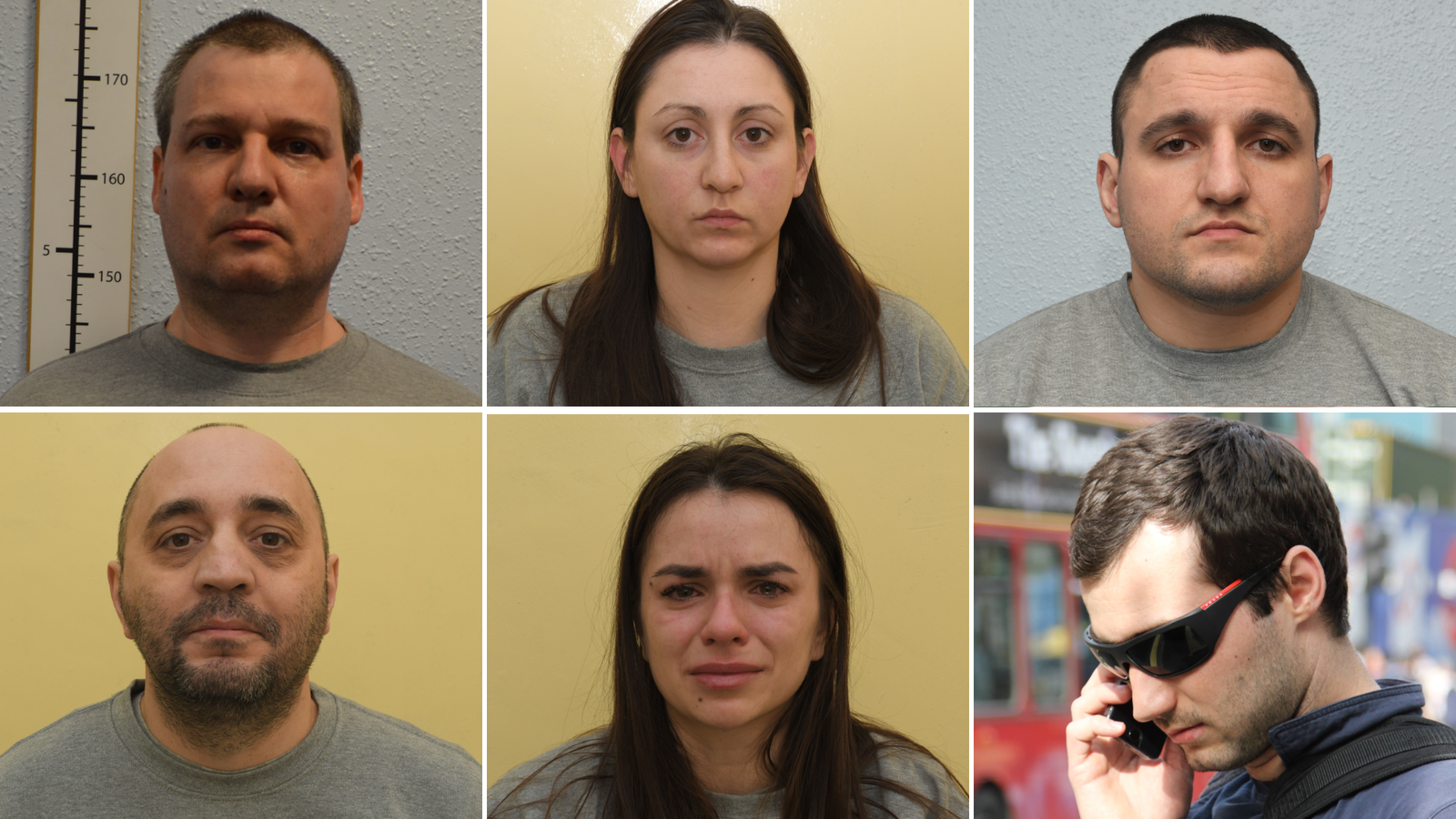Six Bulgarians jailed for spying for Russia

Clockwise from top left: Orlin Roussev, Katrin Ivanova, Ivan Stoyanov, Biser Dzhambazov, Vanya Gaberova and Tihomir Ivanchev
- Published
Six Bulgarians have been sentenced to lengthy prison terms for spying for the Kremlin in the UK and across Europe.
During a trial in London, the Old Bailey court heard the cell was paid handsomely for their services, which included spying on two journalists who had exposed nerve agent attacks on Russian dissidents Alexei Navalny and Sergei Skripal.
The sentencing judge said the group's activities had posed a serious risk to the UK's national security.
Ringleader Orlin Roussev, 47, was jailed for 10 years and eight months. His deputy, Biser Dzhambazov, 44, was sentenced to 10 years and two months.
Dzhambazov's former partner, Katrin Ivanova, 33, was sentenced to nine years and eight months in prison. Three others - Tihomir Ivanchev, 39, Ivan Stoyanov, 33, and Vanya Gaberova, 30 - were jailed for between six and eight years.
Roussev, Dzhambazov and Stoyanov all pleaded guilty to the spying charges, while the other three were convicted at a trial in March.
Prosecutors had told the court they had conducted operations in the UK, Austria, Spain, Germany and Montenegro.
They targeted investigative journalists Christo Grozev and Roman Dobrokhotov, as well as Russian dissidents, political figures and Ukrainian soldiers training at a military base in Germany.
The case against them was described as "one of the largest" foreign intelligence operations in the UK and focused on six of their assignments.
It presented, for the first time in a UK criminal court, the inner workings of a Russian operational spy cell - exposing their thousands of messages organising surveillance, photos and videos of their targets, and talk of plans to kidnap and kill.
Evidence presented to the court this week also revealed new details about Jan Marsalek, an overseas fugitive who directed the unit for Russian intelligence services.
Marsalek, an Austrian, is currently wanted in Germany for fraud allegations linked to the financial services company Wirecard. He is believed to be hiding in Moscow.
The court heard the spy ring referred to themselves as the "minions", inspired by the yellow sidekicks of the villain Gru in the Despicable Me children's film franchise.
The group also frequently referred to the Russian GRU agency - its military intelligence service - in Telegram messages.
Police raided the Norfolk guesthouse housing the operation in 2023 where they found a "treasure trove" of gadgets, including a Minion cuddly toy containing a camera.
In sentencing on Monday, Judge Nicholas Hilliard singled out Roussev as the boss but said all were "motivated by money". Sums of up to €1m (£840,000) were discussed by the gang, demonstrating the "value" of their covert activities to Russia.
Mr Justice Hilliard said using the UK as a base to plan spy operations was a "very serious offence" which "undermines this country's standing with allies".
"Targeting journalists… undermines freedom of the press, one of our core democratic values," he added.
Russia's embassy in London has not responded to the case. The Kremlin has previously always rejected allegations of spying.
Conspiracy to spy carries a maximum sentence of 14 years, but Roussev, Dzhambazov and Stoyanov were afforded some credit for their guilty pleas.
Roussev was ordered to pay a confiscation order of £180,768 in ill-gotten gains by August 2025.
Meanwhile, Gaberova's sentenced was reduced to six years, eight months and three weeks following mitigation.
Her barrister Anthony Metzer KC said she had been "controlled, coerced into this conspiracy by Mr Dzhambazov," who was her lover while also being involved with Ivanova.
The court was told Gaberova had been diagnosed with depression, panic disorder, claustrophobia and anxiety.
The Met Police's Counter Terrorism Command said the case was "a clear example" of the increasing threat of state espionage.
Commander Dominic Murphy said it "highlights a relatively new phenomenon whereby espionage is being 'outsourced' by certain states".
Security Minister Dan Jarvis said: "These substantial sentences should send a clear warning to anyone seeking to threaten our security, harm the UK, and compromise the safety of the public."
- Published7 March

